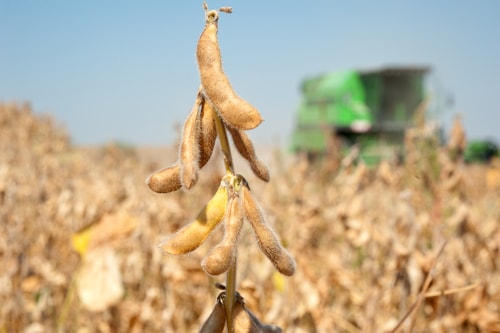Clariva pn is now available
By Diego Flammini, Farms.com
In an effort to aid soybean farmers against soybean cyst nematode (SCN), Syngenta has registered and launched Clariva pn in Canada.
The product is already available in the United States.
“Clariva pn treated soybean seeds will take current SCN management programs to the next level by reducing SCN feeding and reproduction,” said Nathan Klages, Seedcare and Inoculants Product Lead with Syngenta Canada. “This is a targeted, direct and proven solution that will help growers increase yields under SCN pressure.”
The treatment protects the roots while targeting and is compatible with Cruiser Maxx Beans and Vibrance Maxx.
Clairva pn contains the bacteria Pasteuria nishizawae, as its active ingredient. Once a seed treated with Clariva pn is planted, the bacteria’s spores go into the soil, establishing a protective area around the soybean’s roots.

The bacteria infect and kill SCN, preventing its ability to feed and reproduce. While the nematodes decompose, spores are released back into the soil, providing the soybeans with longer and stronger protection.
Clariva pn is versatile under different conditions and during crop rotations.
“Until now, the most common method of managing SCN has been to select soybean varieties with resistance to the pest,” Klages said. “However, a shift in the virulence of SCN means growers require additional management tools – and Clariva pn fills that need.”
Worried that some plants may already be suffering as a result of SCN? Here are some symptoms:
- Stunting and yellowing above-ground
- Adult females can be seen on the roots with the naked eye
- Root stunting and fewer nodules below-ground
Tell us your thoughts about Syngenta’s new Clariva pn seed treatment. Have you ever had to battle SCN? What measures did you take?